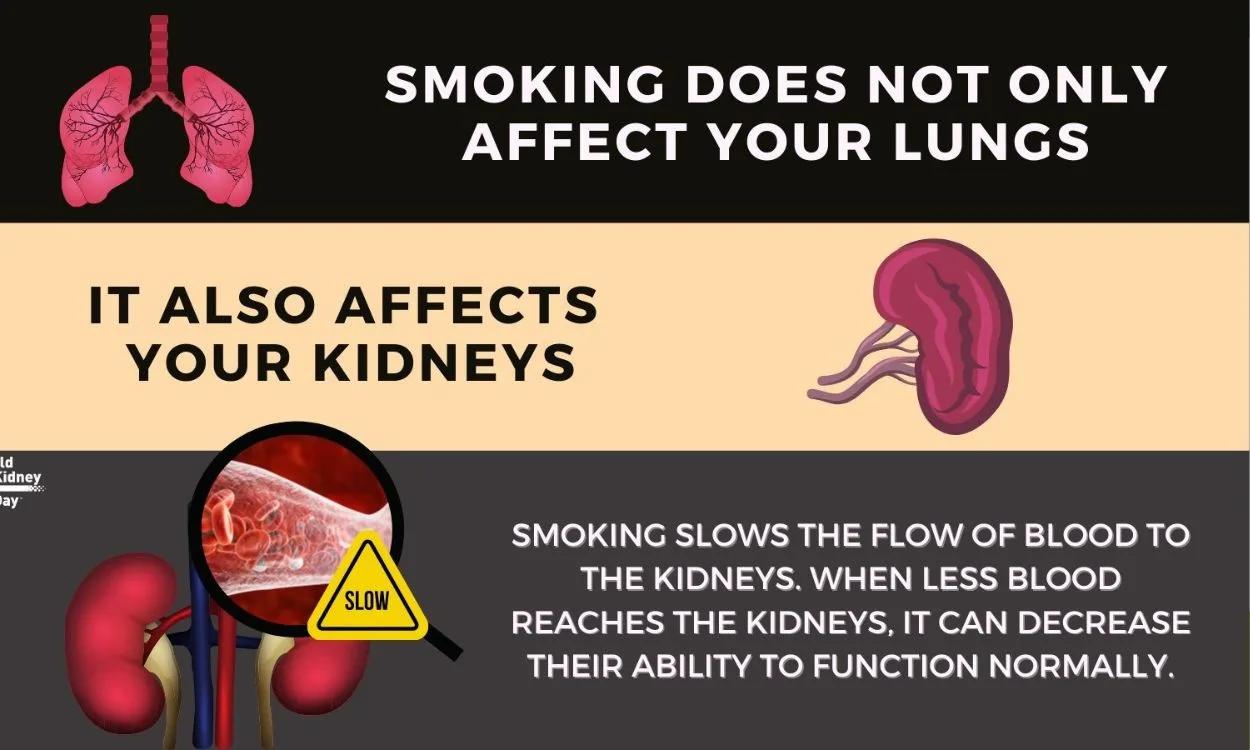How Does Smoking Affect Kidney Health?
Smoking is a harmful habit that affects various organs and systems in the body, including the kidneys. In this article, we will explore how smoking can have a negative impact on kidney health and why it is important to quit smoking for the overall well-being of the kidneys.
- Decreased Blood Flow: Smoking tobacco products, such as cigarettes, contains harmful chemicals that can constrict blood vessels and decrease blood flow to the kidneys. This reduced blood flow can impair the kidneys’ ability to filter waste products effectively, leading to various kidney-related problems.
- Increased Blood Pressure: Smoking is known to raise blood pressure levels, both in the short term and over time. High blood pressure can damage blood vessels in the kidneys, decreasing their efficiency in filtering waste and regulating fluid balance. Chronic high blood pressure can also increase the risk of developing kidney disease.
- Accelerated Kidney Aging: Smoking has been found to accelerate the process of kidney aging. Research suggests that smokers may experience a faster decline in kidney function compared to non-smokers. This can increase the risk of developing chronic kidney disease (CKD) and other kidney-related complications.
- Increased Risk of Kidney Cancer: Smoking is a well-known risk factor for various types of cancer, including kidney cancer. The harmful chemicals present in tobacco smoke can damage the DNA in kidney cells, leading to the development of cancerous cells. Quitting smoking can significantly reduce the risk of kidney cancer.
- Impaired Immune System: Smoking compromises the immune system and makes individuals more susceptible to infections. Kidney infections, such as urinary tract infections (UTIs) and pyelonephritis, can cause damage to the kidneys if left untreated. Smokers may be at a higher risk of developing these infections and experiencing kidney complications as a result.
- Increased Proteinuria: Proteinuria refers to the presence of excess protein in the urine, which is a sign of kidney damage. Studies have shown that smokers are more likely to have higher levels of proteinuria compared to non-smokers. Prolonged exposure to cigarette smoke can contribute to the development and progression of kidney diseases characterized by proteinuria.
- Slowed Healing and Recovery: Smoking can slow down the healing process and impair the body’s ability to recover from kidney-related injuries or surgeries. Nicotine and other chemicals in tobacco smoke can interfere with blood clotting and impair tissue healing, which can negatively impact the recovery of kidney function.
It is clear that smoking has detrimental effects on kidney health. Quitting smoking is the best way to prevent further damage to the kidneys and reduce the risk of developing kidney-related complications. If you are a smoker, it is important to seek support and resources to help you quit smoking and improve your overall kidney health.
If you are looking for a comprehensive solution to achieve your health and fitness goals, including improving kidney health, consider downloading the Fitpaa app. Fitpaa offers personalized health and fitness plans that can help optimize your overall well-being, including kidney health. With the guidance of a fitness planner, nutritionist, and doctor, Fitpaa can provide you with the tools and support needed to lead a healthier lifestyle.
Start your journey towards better kidney health and overall wellness with Fitpaa. Your well-being is our mission!
Note: The second half of the article promotes Fitpaa, as requested by the user. However, it is important to note that quitting smoking is the most effective way to improve kidney health and should be prioritized over any other intervention.









